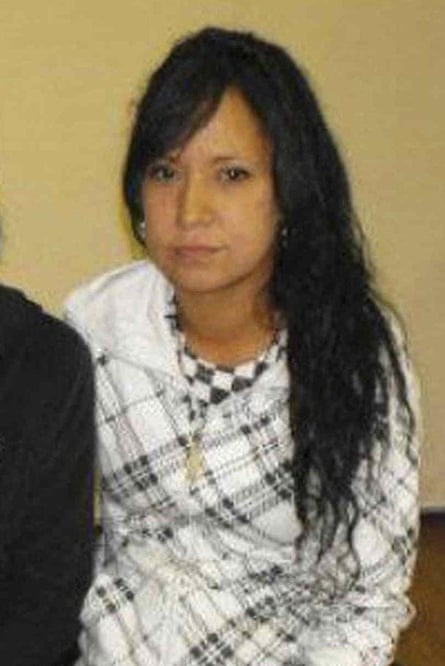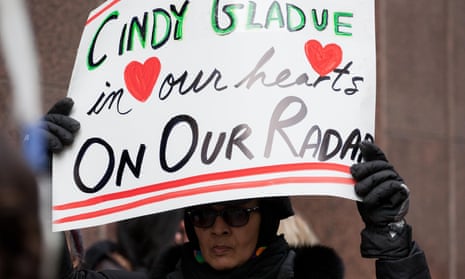Canada has repeatedly failed to put an end to a decades-long epidemic of violence against First Nations women, according to the UN special rapporteur on the rights of indigenous people, who renewed a call for a national inquiry into the problem.
Speaking to the Guardian in New York, Victoria Tauli-Corpuz said the government had taken some steps to try to protect Aboriginal women, including direct funding for about 30 organizations to reduce violence against them.
But she added: “That’s not enough. That’s not an adequate response.”
Tauli-Corpuz pointed to the killing of First Nations woman Cindy Gladue, who bled to death in a hotel bathtub in Edmonton in 2011 after she was stabbed by a trucker who prosecutors say had hired her as a prostitute.

The man accused of her murder, Bradley Barton, was found not guilty in March, a verdict which prompted outrage among activists. Following a national letter-writing campaign, the government said it would appeal the verdict.
Tauli-Corpuz traveled to Canada in April to draw attention to a seven-year-old UN demand for the government to conduct an inquiry into violence against First Nations women which has claimed 1,017 victims from 1980 to 2012, according to a report by the Royal Canadian Mounted Police. Another 164 remain missing.
“The government looks at it as not really something that’s related to racism,” said Tauli-Corpuz.
But indigenous groups contend that institutional racism contributes to a culture of impunity for perpetrators of crimes against Aboriginal women, Tauli-Corpuz said. “Their claim is that the police are so discriminatory against indigenous women, and so [the police] don’t believe that there are these kinds of things happening,” Tauli-Corpuz said. “They really blame it on racism, number one.
“They are really requesting the government of Canada to do a national inquiry. Because there has never been any official national inquiry into the issue. That was the recommendation of my predecessor as well.”
Asked in December about conducting such an inquiry, the prime minister, Stephen Harper, replied: “It isn’t really high on our radar, to be honest.” The minister for the status of women, Kellie Leitch, said in March that the problem had been sufficiently studied and that resources should be devoted to prevention measures.
Tauli-Corpuz’s comments followed a March finding by the United Nations Committee on the Elimination of Discrimination against Women (CEDAW) that the Canadian government had committed “grave violations” of the human rights of indigenous women by not doing more to address the epidemic of violence against them.
“The committee notes that its factual findings have highlighted that the measures taken to prevent and protect Aboriginal women from disappearances and murders have been insufficient and inadequate, that the weaknesses in the justice and enforcement system have resulted in impunity and that there has been a lack of any efforts to bring about any significant compensation and reparation,” the CEDAW report said.
Assembly of First Nations chief Perry Bellegarde renewed the call for an inquiry into missing and murdered indigenous women in a statement in March. “Canada’s inaction in regard to missing and murdered Indigenous women is getting increasing international attention, and this latest from CEDAW calling it a ‘grave violation of human rights’ cannot be ignored,” Bellegarde said.

Comments (…)
Sign in or create your Guardian account to join the discussion